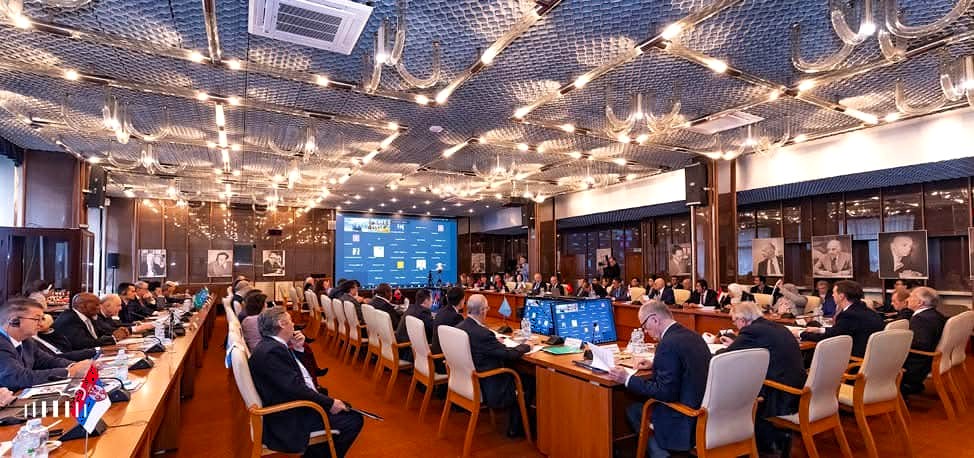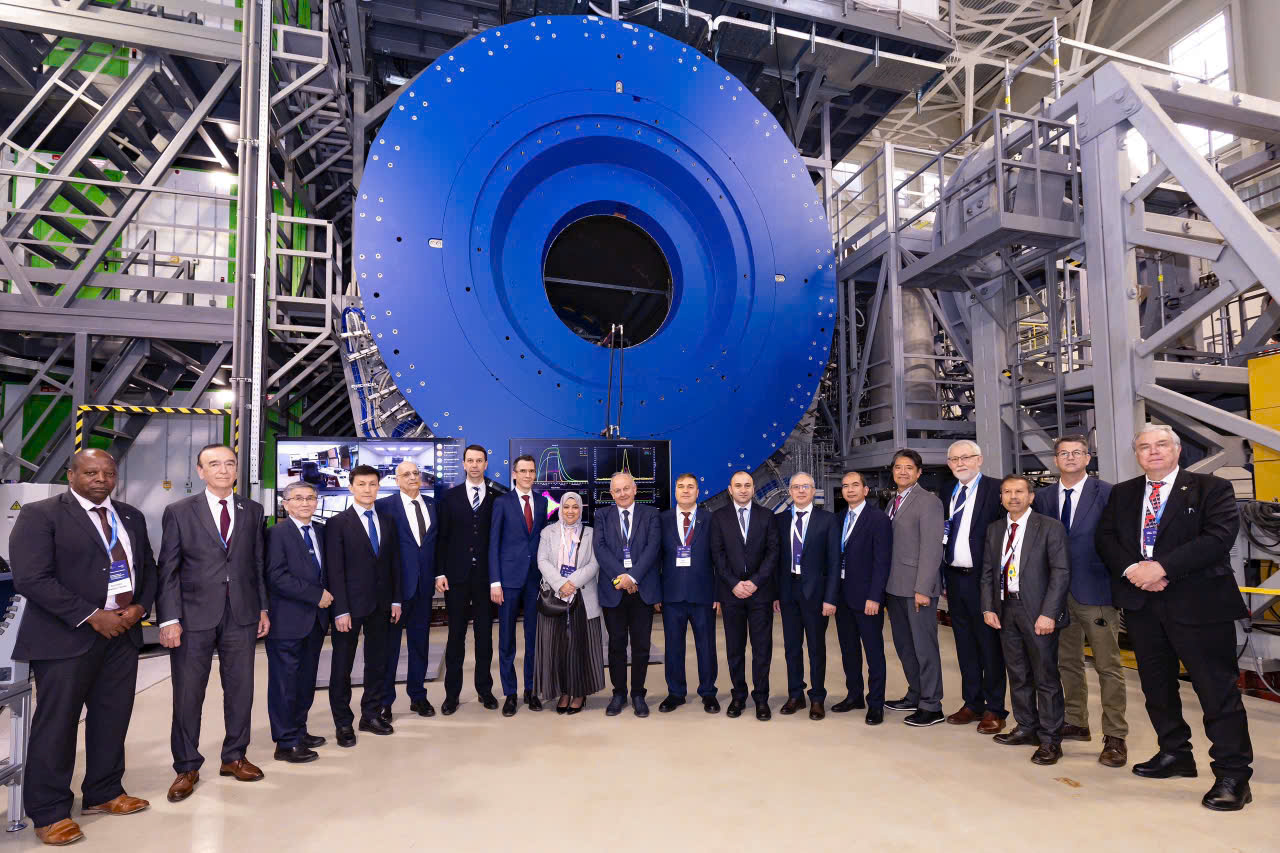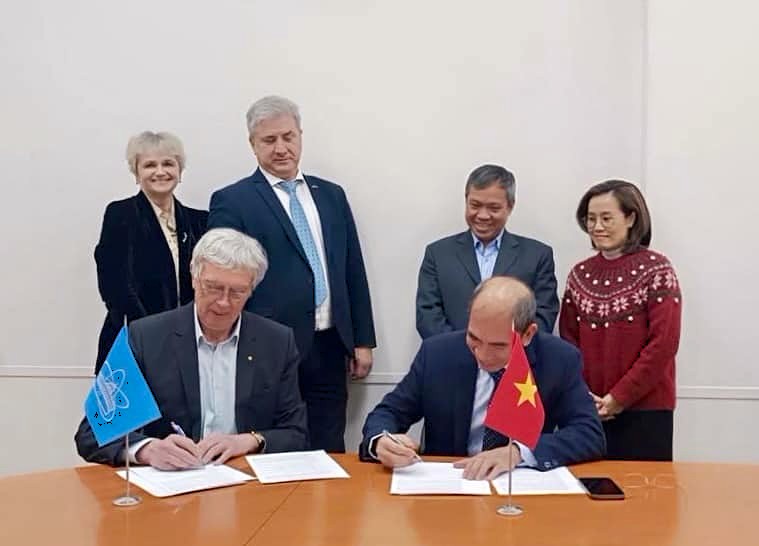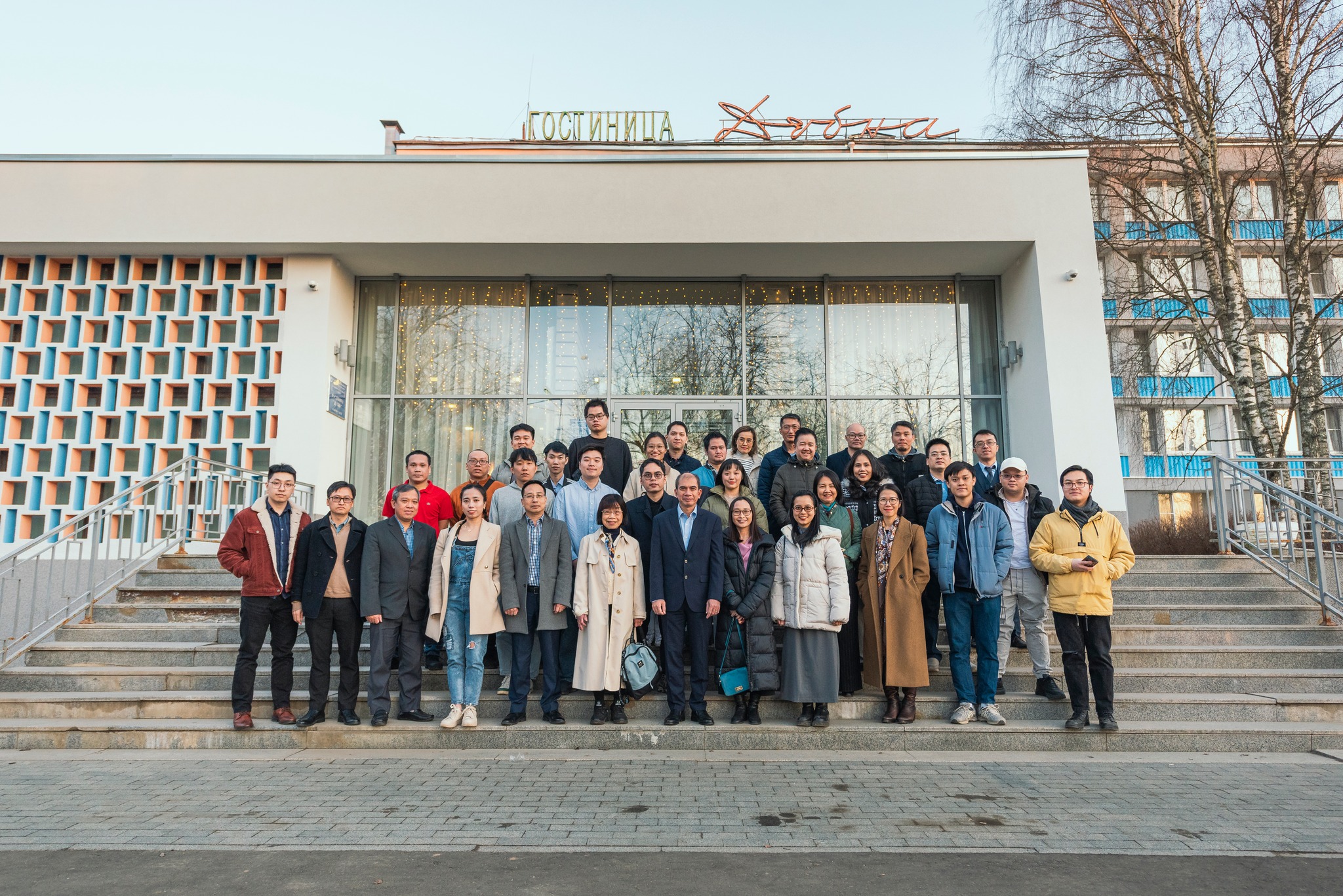Activities
ICP News
Date: 01-04-2025
Vietnam Academy of Science and Technology Attends Plenary Session of the Joint Institute for Nuclear Research (JINR)
Date: April 1, 2025
Location: Dubna, Russian Federation

From March 24–26, 2025, a Vietnamese delegation led by Prof. Dr. Trần Tuấn Anh, Vice President of the Vietnam Academy of Science and Technology (VAST) and Vietnam’s Plenipotentiary Representative to JINR, participated in key meetings of JINR including:
The Finance Committee Meeting (March 24): reviewing 2024 budget execution, approving adjustments for 2025, appointing independent auditors, and updating procurement systems.

The Plenipotentiary Committee Meeting (March 25–26): focused on JINR’s major scientific projects, notably the NICA accelerator complex, collaborations with CERN, the Baikal-GVD neutrino telescope, and superheavy element research. A major highlight was the first beam run of the NICA accelerator, marking a significant milestone in international nuclear physics. Vietnam’s delegation included senior representatives from VAST, the Institute of Physics, and the International Cooperation Department.

Prof. Trần Tuấn Anh held bilateral talks with Academician Sharkov (JINR’s Special Representative for International Cooperation) to discuss the establishment of a JINR Information Center in Vietnam and research funding allocations. A Vietnam-JINR Joint Committee Meeting (JCC) was held and concluded with a cooperation agreement.
Vietnam’s scientists at JINR are growing in both quantity and quality: 36 Vietnamese researchers in 2024, expected to reach 45 in 2025; 36 international publications in 2024, over half in Q1 journals, and 40% with Vietnamese first authors. Areas of contribution: accelerator operations, neutron/heavy-ion experiments, nanomaterials research, and theoretical physics. Prof. Trần Tuấn Anh presented awards to three outstanding young Vietnamese researchers for their international achievements.

The visit reaffirmed Vietnam’s commitment to international scientific collaboration, especially in nuclear and interdisciplinary physics, enhancing the country’s presence in the global scientific community.
Location: Dubna, Russian Federation

From March 24–26, 2025, a Vietnamese delegation led by Prof. Dr. Trần Tuấn Anh, Vice President of the Vietnam Academy of Science and Technology (VAST) and Vietnam’s Plenipotentiary Representative to JINR, participated in key meetings of JINR including:
The Finance Committee Meeting (March 24): reviewing 2024 budget execution, approving adjustments for 2025, appointing independent auditors, and updating procurement systems.

The Plenipotentiary Committee Meeting (March 25–26): focused on JINR’s major scientific projects, notably the NICA accelerator complex, collaborations with CERN, the Baikal-GVD neutrino telescope, and superheavy element research. A major highlight was the first beam run of the NICA accelerator, marking a significant milestone in international nuclear physics. Vietnam’s delegation included senior representatives from VAST, the Institute of Physics, and the International Cooperation Department.

Prof. Trần Tuấn Anh held bilateral talks with Academician Sharkov (JINR’s Special Representative for International Cooperation) to discuss the establishment of a JINR Information Center in Vietnam and research funding allocations. A Vietnam-JINR Joint Committee Meeting (JCC) was held and concluded with a cooperation agreement.
Vietnam’s scientists at JINR are growing in both quantity and quality: 36 Vietnamese researchers in 2024, expected to reach 45 in 2025; 36 international publications in 2024, over half in Q1 journals, and 40% with Vietnamese first authors. Areas of contribution: accelerator operations, neutron/heavy-ion experiments, nanomaterials research, and theoretical physics. Prof. Trần Tuấn Anh presented awards to three outstanding young Vietnamese researchers for their international achievements.

The visit reaffirmed Vietnam’s commitment to international scientific collaboration, especially in nuclear and interdisciplinary physics, enhancing the country’s presence in the global scientific community.
